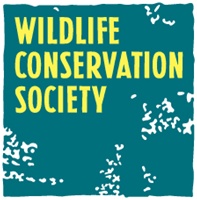Endangered birds lay eggs on exclusive beach in Indonesia
 Washington, May 17 : An endangered bird found only on the Indonesian island of Sulawesi, has been provided an exclusive stretch of sand as a protected nesting area, where it can lay eggs.
Washington, May 17 : An endangered bird found only on the Indonesian island of Sulawesi, has been provided an exclusive stretch of sand as a protected nesting area, where it can lay eggs.
The bird in question is the maleo, a chicken-sized bird that lays its eggs in sand heated by either the sun or volcanism that occurs in its habitat on the island of Sulawesi.
Located on the Binerean Cape in northern Sulawesi, the 14-hectare beach is now owned by PALS (Pelestari Alam Liar dan Satwa, or Wildlife and Wildlands Conservation), a local NGO that works with WCS (Wildlife Conservation Society) to conserve wildlife in Sulawesi.
The beach is now a protected habitat for the maleo, which relies on the sun-baked sands of beaches and in some instances, volcanically heated soil, to incubate its eggs, which it buries in the ground.
The beach was purchased for approximately 12,500 dolars, funds donated by the Lis Hudson Memorial Fund and the Singapore-based company Quvat Management. The project also was supported throughout by the Dutch-based Van Tienhoven Foundation.
"Protecting this beach is just the first step in what will soon be a comprehensive conservation project for the benefit of the maleo," said Noviar Andayani, Country Director of WCS's Indonesia Program.
"Fewer than 100 nesting sites still exist throughout the bird's entire home range, so every one counts," he added.
The maleo is a chicken-sized bird with a blackish back, a pink stomach, yellow facial skin, a red-orange beak and a black helmet or "casque."
The bird's eggs are some five times larger than those of a chicken and are buried by the parent birds in the soil and then abandoned.
The chicks hatch and emerge from the soil able to fly and fend for themselves.
Four maleo chicks were released in a ceremony held by WCS staff members and some 60 participants from local communities to commemorate the beach's new protected status.
The ceremonial party also released 98 green, leatherback, and olive ridley turtle hatchlings into the surf.
The beaches of Binerean Cape are an important nesting ground for all three species; in addition to protecting maleo nests, WCS staff members safeguard turtle nests which have produced some 500 hatchlings this season.
In addition to maleos and sea turtles, the beach supports a coconut farm that produces more than 10,000 coconuts per year. (ANI)